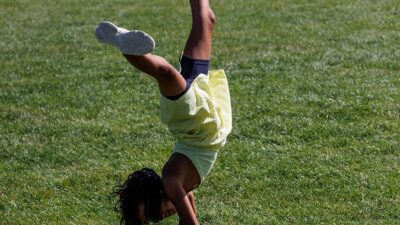As the world eagerly awaits the next Olympic Games, athletes across the globe are in the throes of intense training, pushing their minds and bodies to the limit in pursuit of their Olympic dreams. The journey to the Olympics is both exhilarating and grueling; it is a process filled with sacrifice, discipline, and unwavering determination. This article delves into what it takes to train for the Olympics, highlighting the physical, mental, and emotional aspects of this monumental undertaking.
The Road to Excellence: Physical Training
Athletes often begin their Olympic journey years in advance, with training regimens usually designed by expert coaches. The physical training involved varies significantly by sport, but some common elements include:
1. Rigorous Conditioning
The foundation of any successful athlete’s training program is rigorous conditioning. This includes building strength, endurance, flexibility, and agility. Regimens might involve weight training, cardiovascular workouts, and sport-specific drills that replicate the demands of competition. For instance, sprinters may focus on explosive power, while long-distance runners emphasize endurance.
2. Nutrition and Recovery
With intensive training comes the need for proper nutrition. Athletes often consult nutritionists to develop diet plans that fuel their bodies and optimize performance. Recovery is equally critical; this includes rest days, massage, physical therapy, and sleep. Many athletes employ techniques like cryotherapy or hydrotherapy to aid recovery and prevent injuries.
3. Skill Development
Repetitions are crucial. Athletes spend countless hours honing their skills through drills, practices, and competitions. Consistency allows them to perfect techniques and adapt to the pressures of high-stakes performances.
The Mental Game: Psychological Preparation
While physical training is undeniably important, the mental fortitude required for Olympic success cannot be overstated. The psychological aspects of training involve:
1. Mental Toughness
Athletes must cultivate an inner resilience to overcome setbacks, injuries, and the pressures of competition. Techniques such as visualization, positive self-talk, and meditation can help athletes maintain focus and composure.
2. Goal Setting
Setting short- and long-term goals enables athletes to stay motivated and measure their progress. These goals often evolve as athletes advance in their training, requiring them to adapt their strategies accordingly.
3. Dealing with Pressure
The intensity of the Olympic stage can be overwhelming. Athletes practice scenarios that mimic competition conditions to prepare mentally for the pressure of performance. Working with sports psychologists can help in developing strategies to manage nerves and expectations.
The Emotional Toll: Balancing Life and Training
The pursuit of Olympic glory is a significant commitment that often requires substantial sacrifices. This journey can impact an athlete’s personal life, education, and mental health.
1. Social Sacrifices
Many athletes find themselves away from family and friends for long periods due to training camps and competitions. The emotional toll of this separation can be challenging, making it essential for athletes to maintain strong support systems.
2. Injury Management
Injuries are a significant risk, and coping with the physical pain and emotional frustration of being sidelined can be incredibly difficult. An athlete’s ability to bounce back from injury often tests their determination and resilience.
3. Achieving a Work-Life Balance
Finding a balance between relentless training and personal life is crucial. Many athletes pursue education or careers alongside their training, leading to a juggling act that requires excellent time management and prioritization skills.
The Final Countdown: Olympic Trials
The excitement surrounding the Olympics culminates in the trials, where athletes face the ultimate test: qualifying for the Games. This final phase of training is intensely focused, often involving:
1. Peaking Performance
Athletes adjust their training intensity to ‘peak’ for their event, ensuring they are at their best physically and mentally. This delicate balance can be a science in itself.
2. Final Preparations
The weeks leading up to the trials involve simulating competition environments and fine-tuning every aspect of performance, from strategies to logistics.
3. Building Team Spirit
For team sports, fostering a strong sense of unity and teamwork is crucial during this period. Trust among teammates can make all the difference in high-pressure situations.
Conclusion: The Heart of an Olympian
Training for the Olympics is more than just physical preparation; it encompasses a complete lifestyle overhaul requiring dedication, resilience, and passion. Each athlete’s journey is unique, filled with personal challenges and victories. As the countdown to the next Olympic Games continues, we are reminded of the extraordinary efforts and sacrifices these athletes make in pursuit of their dreams. It is not merely about winning medals but reflecting the spirit of human perseverance and the relentless chase for glory. The Olympics symbolize what is possible when dedication meets opportunity—a universal testament to the power of dreams.



